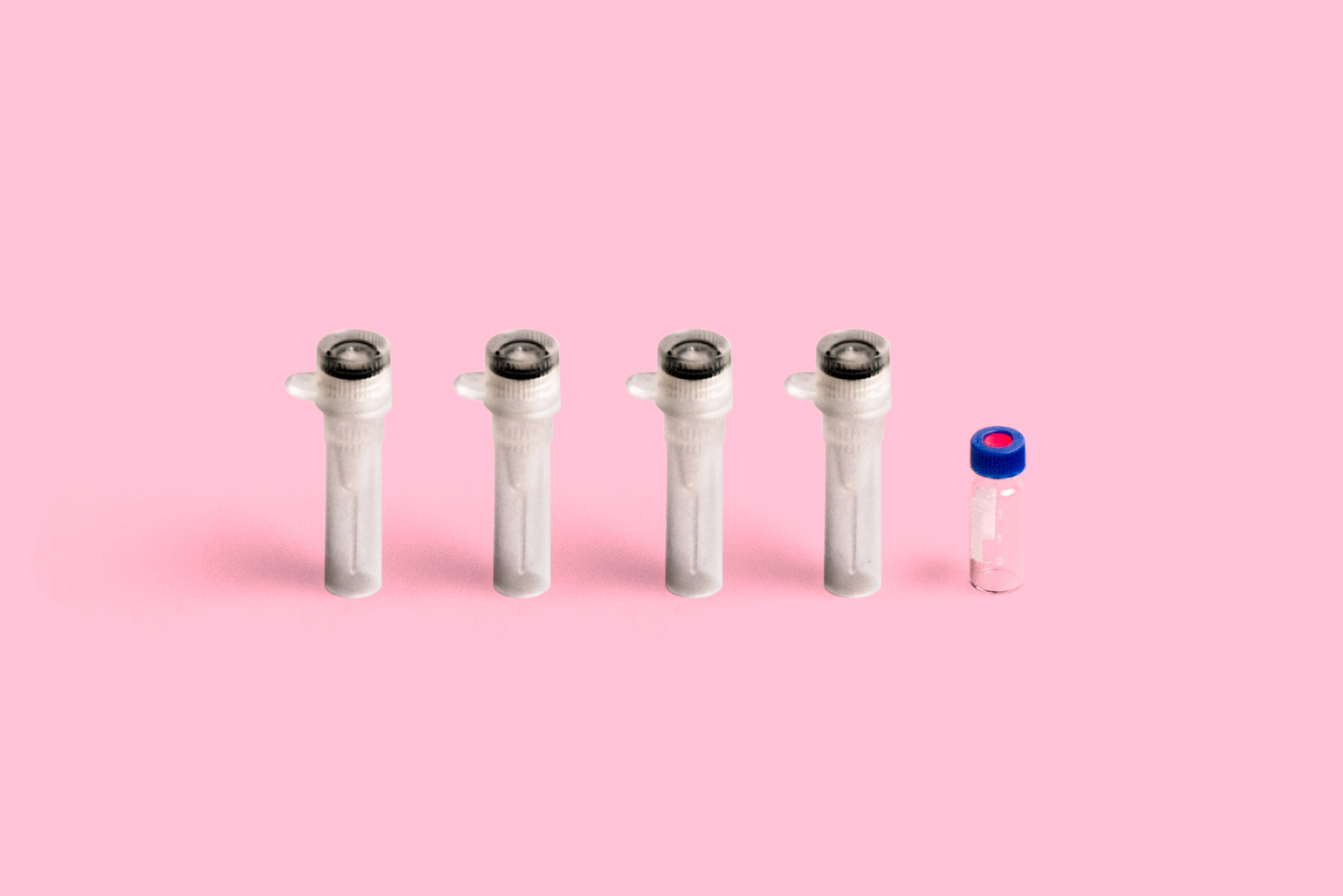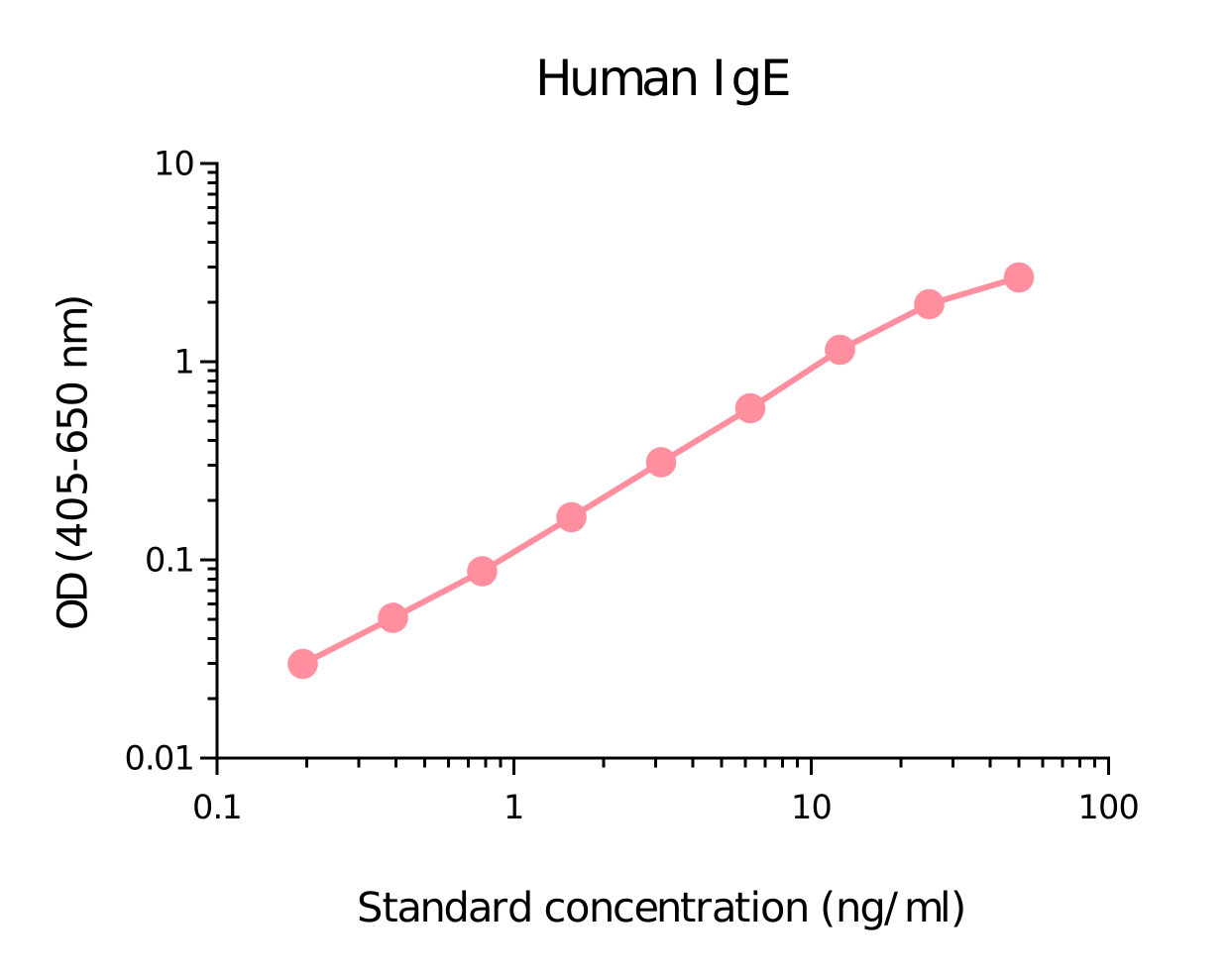Human total IgE ELISA Kit
ARG80774
Product group Assays
Overview
- SupplierArigo Biolaboratories
- Product NameHuman total IgE ELISA Kit
- Delivery Days Customer23
- ApplicationsELISA
- Assay Sensitivity0.8 IU/ml
- Assay Time30, 15 min
- CertificationResearch Use Only
- ConjugateHRP
- Scientific DescriptionThe existence of IgE in man as a unique class of immunoglobulins which are important in the mediation of the allergic response has been known for over twenty years. The mechanism of action involves an initial antigenic stimulation of immunocompetent B lymphocytes by a specific antigen, a process which induces the lymphocyte to respond by producing specific antibody of several classes. One class, reaginic or IgE antibody, becomes partially bound via its Fc portion to receptors on the surface of mast cells and basophilic leukocytes. Upon further stimulation by specific allergens, these cell-bound IgE molecules bind via their Fab portion to the allergen. This combination triggers the mast cells and basophilic leucocytes to release various vasoactive amines into the blood and the surrounding tissue. These substances cause smooth muscle constriction and lead ultimately to allergic conditions such as wheal and flare reactions, hives, dermatitis, rhinitis, hay fever, asthma and anaphylactic shock. IgE determinations are most valuable in the diagnostic assessment of patients with established or suspected allergic desease. In normal subjects, IgE values are related to age, with normal values peaking around 10 - 14 years. Infants and children with family history of atopic allergy are at increased risk of developing disease and constitute a prime population for screening. Studies have shown that conditions such as asthma, rhinitis, eczema, urticaria, dermatitis and some parasitic infections lead to increased IgE levels. Asthma, hay fever and atopic eczema patients may produce levels 3 - 10 times those of normal patients.
- Storage Instruction2°C to 8°C
- UNSPSC41116100





